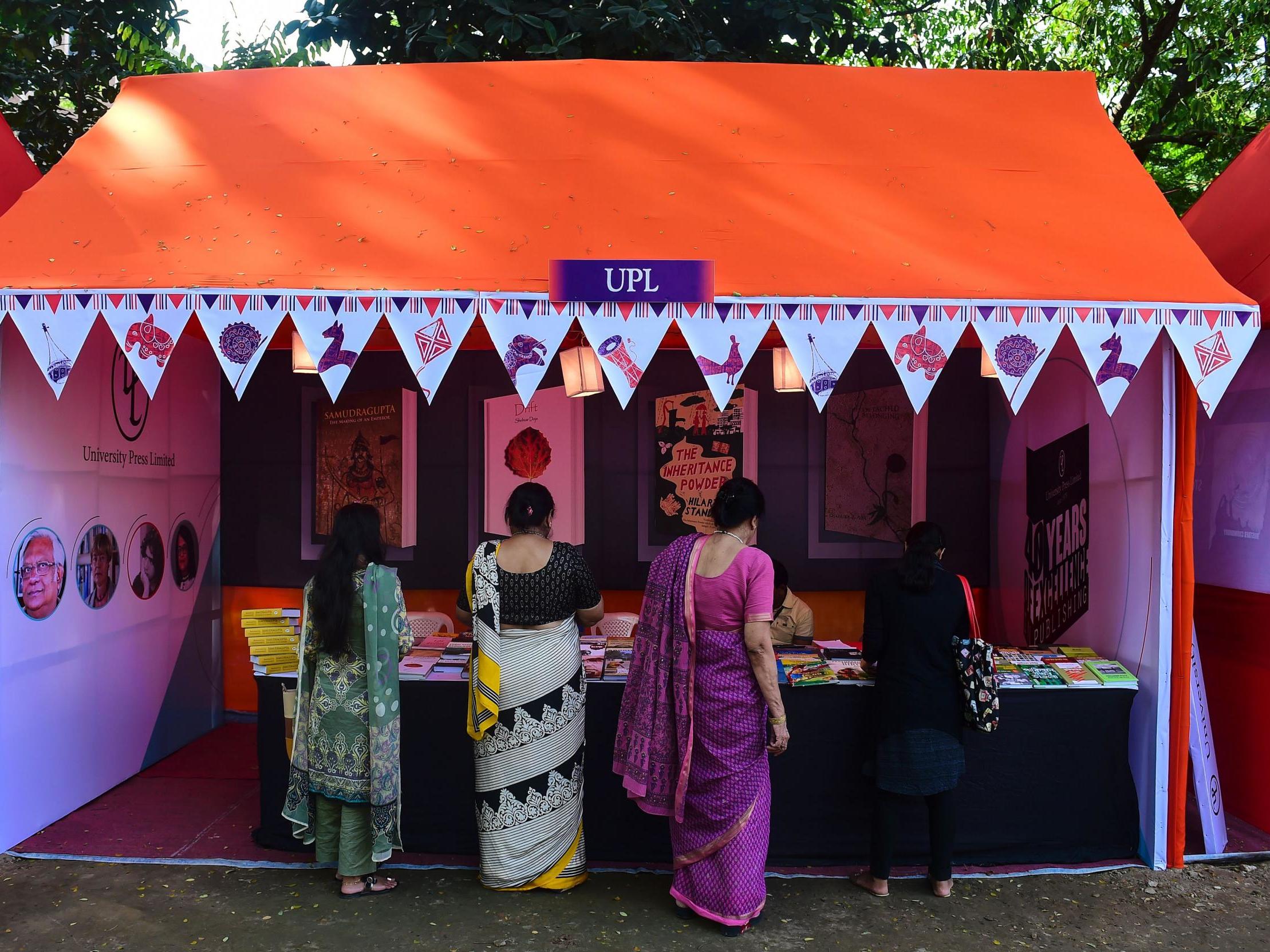Dhaka: where a literary festival can still make a difference
The annual event in Bangladesh is a celebration of ideas in an old-fashioned sense, writes Ed Cumming, it provides a space for thoughts the political leaders might not want to hear


What's the point of a literary festival? Should they be cosy, self-congratulatory affairs, in which writers trot out platitudes and arguments with which the audience already agree? Or should they aim to challenge orthodoxy, even when it risks trouble?
It sounds obvious, but even in this contentious political moment, festivals in the UK are not unpredictable. Formulae are followed. Big names will trot out a few spicy opinions about politics, unrelated to their books but in the hope of selling more copies of them. On one or two panel debates there will be bursts of mild crossfire, and afterwards the combatants will drink champagne together at the sponsors' expense. However much they might protest otherwise, there is not much at stake. Brexit or no, Britain is lucky that its core freedoms of speech, thought and assembly remain unassailable.
In Bangladesh, these liberties are not to be taken for granted. At the Dhaka Lit Fest, whose ninth edition begins in November, the ideas debated on stage have a force and relevance that it is hard to imagine in the bourgeois sanctity of a Cheltenham or Hay-on-Wye. The festival, which began life as Hay Dhaka, is a celebration of ideas in an old-fashioned sense, which is that it provides a space for thoughts the political leaders might not want to hear. Security threats means the festival cannot go ahead without government support, but its speakers routinely challenges government views, which leads to an uneasy relationship between the DLF and the authorities.
I saw this first-hand last year, when I was invited to chair a few debates and interview writers, including the novelist and essayist James Meek. As is always the case at the DLF, the speakers were a mix of local and international writers and artists. Bangladesh has a pride in its literary heritage to put the French or Russians to shame, but its current government has not always had publishing freedom at the top of its agenda. At the outset of the three day event, the photographer and activist Shahidul Alam was languishing in jail, arrested for violating controversial internet laws. Speakers, including the British novelist Philip Hensher, repeatedly called for his release. Two weeks after the end of the festival, Alam was let out, more than 100 days after his arrest. The Dhaka Lit Fest has been criticised within Bangladesh for being too western-facing, but it cannot hurt to have international figures of this stature – the Oscar-winning actor Tilda Swinton has attended the festival for the past two years – draw attention to these causes.
It's not only the government that can be pressured into action. Before last year's festival, Bangladesh had yet to see its own version of the #MeToo movement that swept the UK, US and other western countries since late 2017, with women speaking out against predatory men. A day after a panel discussion on the subject at DLF, young women began to come forward on social media to name names.
One obvious difference between Dhaka and comparable literary festivals elsewhere is the make-up of the audience. The DLF is free to attend, and heavily oversubscribed, with more than 30,000 people visiting over three days last year, most of them young. Compare this to some festivals in the UK, where tickets to a day's events could set you back £100 before travel, and as a consequence skew old. At the DLF, the audience is comprised of those who might not normally be exposed to such diverse views.
This year, speakers will include Monica Ali, William Dalrymple and Will Self, as well as writers, poets and musicians from across Bangladesh. The political situation in the country remains delicate. Journalists are still being imprisoned for doing their jobs. The million Rohingya refugees from Myanmar living in temporary accommodation in the south-east of Bangladesh might have dropped off Western newspaper front pages, but they are still at the forefront of Bangladeshi discourse. Some problems are too big to be solved by a single festival, or a single country.
The Dhaka Lit Fest 2019 runs from 7-9 November
Join our commenting forum
Join thought-provoking conversations, follow other Independent readers and see their replies
Comments
Bookmark popover
Removed from bookmarks